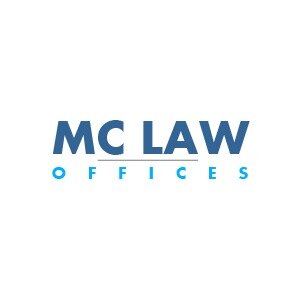Best Restructuring & Insolvency Lawyers in Port Louis
Share your needs with us, get contacted by law firms.
Free. Takes 2 min.
List of the best lawyers in Port Louis, Mauritius
About Restructuring & Insolvency Law in Port Louis, Mauritius
Restructuring and insolvency law in Port Louis, Mauritius provides a vital framework for businesses and individuals facing financial distress. These laws govern the processes for reorganizing debts, restructuring operations, and, if necessary, managing liquidation proceedings. The primary legislation in this field is the Insolvency Act 2009, complemented by regulations and guidelines issued by local authorities. The law seeks to balance the interests of debtors, creditors, employees, and other stakeholders, promoting financial stability and encouraging the rescue or orderly winding up of distressed entities.
Why You May Need a Lawyer
Navigating the complexities of restructuring and insolvency can be daunting, especially without legal expertise. You may require a lawyer in the following situations:
- Your business is facing mounting debts and you are unsure how to proceed.
- You are a creditor concerned about recovering owed money from an insolvent company or individual.
- You need guidance on voluntary administration, company restructuring, or negotiating with creditors.
- There are allegations of wrongful trading, fraudulent transactions, or mismanagement.
- You are considering formal insolvency proceedings such as receivership, liquidation, or bankruptcy.
- You need to protect your legal rights or assets during a period of financial uncertainty.
- You want to ensure compliance with local insolvency laws and minimize personal liability.
Legal advice can help you understand the options available, comply with mandatory procedures, and protect your financial interests during stressful situations.
Local Laws Overview
The key piece of legislation governing restructuring and insolvency in Port Louis is the Insolvency Act 2009. This act sets out procedures for administering insolvent estates and companies, including liquidation, voluntary administration, receivership, and compromise with creditors. The Act also outlines the duties and powers of insolvency practitioners, the rights of secured and unsecured creditors, and the protection available to debtors.
Other relevant legal provisions can be found in the Companies Act 2001, which addresses company restructures and reconstructions, and the Bankruptcy Rules, which detail bankruptcy proceedings for individuals. The Financial Services Commission of Mauritius provides oversight and regulation for insolvency practitioners and financial service entities. Mauritius courts, especially the Supreme Court sitting in Port Louis, play an essential role in supervising and adjudicating insolvency matters.
Frequently Asked Questions
What is the difference between restructuring and insolvency?
Restructuring involves reorganizing a company’s financial or operational structure to improve its viability, often before formal insolvency. Insolvency occurs when an individual or company cannot pay its debts as they fall due, often leading to legal proceedings such as liquidation or bankruptcy.
How do I know if my company is insolvent?
A company is likely insolvent if it cannot pay its debts when due or if its liabilities exceed its assets. Assessment should be made using both cash flow and balance sheet tests. Legal advice can provide an accurate assessment.
What are the main insolvency procedures in Mauritius?
The main procedures include liquidation, receivership, voluntary administration, schemes of arrangement, and bankruptcy for individuals. Each process has specific purposes and triggers under the law.
Who can initiate insolvency proceedings?
Creditors, company directors, shareholders, or the company itself can initiate insolvency proceedings, depending on the circumstances and type of procedure.
What is the role of an insolvency practitioner?
Insolvency practitioners, such as liquidators or administrators, are licensed professionals who manage the process, either restructuring the entity or realizing assets to pay creditors according to the law.
What happens to employees during insolvency?
Employees’ claims, such as unpaid wages and benefits, are recognized as preferential debts. While efforts are made to protect employee rights, outcomes may vary depending on the assets available for distribution.
Can directors be held personally liable?
Directors can be held personally liable for company debts if they continue trading while knowingly insolvent, fail in their fiduciary duties, or engage in fraudulent conduct.
How are creditors prioritized in Mauritius?
The Insolvency Act sets out an order of priority. Secured creditors are paid first from secured assets, followed by preferential creditors such as employees and tax authorities, and finally unsecured creditors.
Is it possible to avoid liquidation?
Yes, options such as voluntary administration, schemes of arrangement, or creditor compromises may rescue a business or allow for more favorable settlements. Early legal intervention increases the likelihood of successful restructuring.
What is cross-border insolvency?
Cross-border insolvency addresses cases where debts or assets are located in various countries. Mauritius law contains provisions, aligned with the UNCITRAL Model Law, to manage such cases efficiently and cooperatively with foreign insolvency proceedings.
Additional Resources
If you are seeking more information or assistance regarding restructuring and insolvency in Port Louis, Mauritius, consider the following resources:
- Supreme Court of Mauritius - for official court procedures and case filings
- Office of the Director of Public Prosecutions - for matters involving suspected fraud or malpractice
- Registrar of Companies - for company searches and official filings
- Financial Services Commission of Mauritius - regulator for insolvency practitioners
- Insolvency Service Division at the Ministry of Financial Services and Good Governance - for guidance and public information on insolvency processes
- Professional associations such as the Mauritius Institute of Directors or local Bar Associations for lawyer referrals
Next Steps
If you believe you may need legal assistance for restructuring or insolvency issues in Port Louis, Mauritius, consider the following steps:
- Collect all relevant financial documents, contracts, and correspondence.
- Assess your current financial position to understand the urgency and nature of the problem.
- Consult with a qualified restructuring or insolvency lawyer who understands local laws and procedures.
- Discuss your options thoroughly, ranging from informal negotiations with creditors to formal court-supervised processes.
- Follow your lawyer’s advice on legal obligations and notifications to protect your rights and minimize liability.
- Remain proactive and communicate clearly with all stakeholders to facilitate a transparent and fair process.
Early legal intervention can greatly increase your chances of a positive outcome, whether your aim is a successful restructuring, negotiating with creditors, or managing insolvency proceedings efficiently and legally.
Lawzana helps you find the best lawyers and law firms in Port Louis through a curated and pre-screened list of qualified legal professionals. Our platform offers rankings and detailed profiles of attorneys and law firms, allowing you to compare based on practice areas, including Restructuring & Insolvency, experience, and client feedback.
Each profile includes a description of the firm's areas of practice, client reviews, team members and partners, year of establishment, spoken languages, office locations, contact information, social media presence, and any published articles or resources. Most firms on our platform speak English and are experienced in both local and international legal matters.
Get a quote from top-rated law firms in Port Louis, Mauritius — quickly, securely, and without unnecessary hassle.
Disclaimer:
The information provided on this page is for general informational purposes only and does not constitute legal advice. While we strive to ensure the accuracy and relevance of the content, legal information may change over time, and interpretations of the law can vary. You should always consult with a qualified legal professional for advice specific to your situation.
We disclaim all liability for actions taken or not taken based on the content of this page. If you believe any information is incorrect or outdated, please contact us, and we will review and update it where appropriate.














